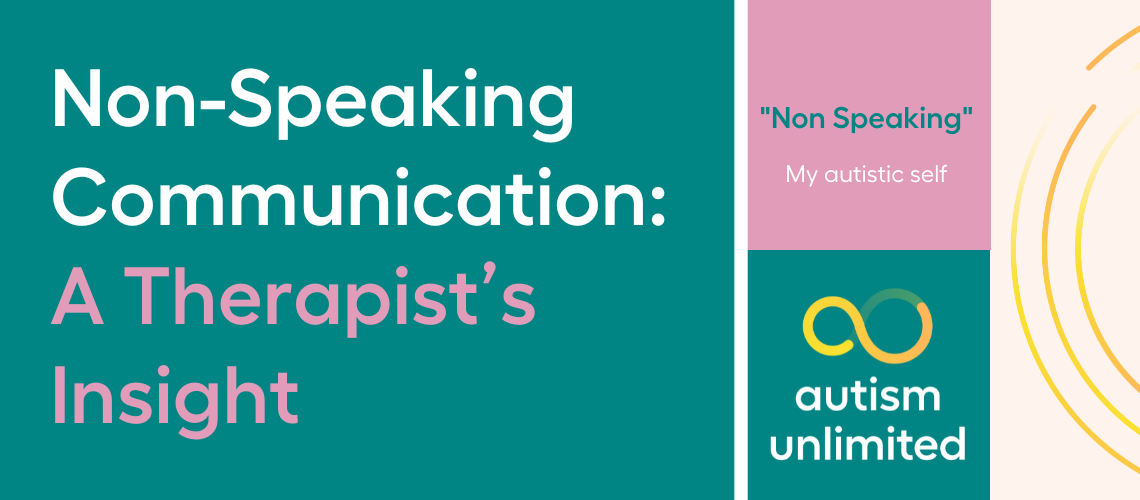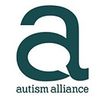Non-Speaking: A Therapist's Insight

The below blog shares a Speech and Language Therapist's insight into non-speaking communication and the different ways our therapy team support individuals who are non-speaking.
What is it/can you describe it to me?
Non-speaking means where somebody is not currently able to communicate recognisable words using their voice. This is not due to a difficulty producing vocal sounds, but is thought to be as a result of neurological differences. These individuals might use Alternative and Augmentative Communication (AAC) means to communicate such as using body language, hand signing, sounds, pictures and/or technology. We don’t always know the reasons why somebody is non-speaking. For some, it can be due to difficulties with the messages sent from the brain to the mouth, and in others, they may not yet understand that they can use their voice to communicate.
How can your team/therapy support someone?
As a Speech and Language Therapy service, we meet each individual where they are and work with them accordingly to take the next steps in their communication development. This tends to look different for everyone, but some examples of the work we do with individuals that are not currently speaking include:
- Play and movement based therapy, sometimes joint with an Occupational Therapist
- Structured activities focussing on specific speech skills
- Developing skills using AAC to practice meaningful expression of language
- We also work to help teams to support non-speaking individuals optimally across their day
We have had many successes supporting students, for example, 4 and 5 year olds starting the school non-speaking then beginning to say first words; and some primary aged students developing their meaningful speech sounds for the first time. We have also had success with individuals who currently remain non-speaking with introducing a meaningful communication system, where they have been able to express their wants and needs using pictures, signing and technology.
Are there any myths you would like to dispel that surround it?
Just because somebody is non-speaking, it does not necessarily mean that they will never speak. Individuals can begin to use spoken words at various ages. For example, we have seen students at this school begin saying words at ages 6, 10 and even 13!
Another misconception can be about a person’s level of understanding. Some individuals are able to understand a lot more than they can say or express, whereas others need equal support for their comprehension and their expression.
No two people are the same! We always want to be working to maximise individual potential, and this looks different for everyone.
*Written by the Speech and Language Therapy team at Autism Unlimited.






